Believe it or not, over seven million domesticated horses live in the US as working animals and pets. They comfortably live in approximately 450,000 horse farms or are owned by about a million horse owners. On the other hand, wild horses live freely in nature. Unfortunately, it comes at a price, and they live shorter because of an unbalanced diet and lack of shelter and vet care.
It is pretty challenging to answer the question of how long does a horse live. The horse expected lifespan is about 20 to 30 years, depending on the breed, but small horse breeds usually live longer than larger ones. It is recorded that the longest living domestic horse lived 62 years, and one wild horse was 36 years old.
Horse Lifespan
Horse lifespan will primarily depend on genetics, diet, exercise, vet care, and living conditions. It is about 20 to 30 years, but many animals go well beyond the average. One thing is for sure. Nowadays, horses live much longer than ever.
Horse life expectancy |
|
| Breed | Average life expectancy |
| Wild horse | 15 years |
| Domestic horse | 25 to 33 years |
For example, ponies usually live longer, and you can use them as schoolmasters even in their 30s. Some of them reach 40+ years, as well. Unfortunately, large horses, especially draft breeds, are not as long-lived, but you can find a few that enjoy a happy life in their forties.
Horse life expectancy |
|
| Breed | Average life expectancy |
| Mustang | 15 to 20 years |
| Friesian | 16 to 18 years |
| Gypsy Horse | 20 to 25 years |
| American Quarter Horse | 20 to 25 years |
| Clydesdale Horse | 20 to 25 years |
| Norwegian Fjord | 20 to 25 years |
| Thoroughbred | 25 to 28 years |
| Belgian Draft Horse | 25 to 30 years |
| Clydesdale | 25 to 30 years |
| Percheron | 25 to 30 years |
| Shire | 25 to 30 years |
| Icelandic Horse | 25 to 30 years |
| Arabian Horse | 25 to 35 years |
| Quarter Horse | 25 to 35 years |
| Miniature Horse | 25 to 35 years |
| Tennessee Walking Horse | 28 to 30 years |
| Appaloosa | 29 to 33 years |
| American Paint Horse | 30 to 31 years |
Wild horses live much shorter because of their demanding lifestyle. Their approximate lifespan is about 15 years.
The Oldest Horses Ever Lived
A large Shire-type horse, Old Billy worked well even in its senior years. This fascinating, 62-year old animal lived a hard life in the UK as a barge horse towing barges throughout river canals in the 18th century. It became famous during its lifetime and found its place in the Guinness World Records as the oldest horse worldwide.
The oldest horses worldwide |
|||
| Breed | Name | Age | Period |
| Shire Stallion | Old Billy | 62 years | 1760 to 1822 |
| Shetland-Exmor pony cross | Sugar Puff | 56 years | 1951 to 2007 |
| Arab-Welsh cross | Badger | 51 years | 1953 to 2004 |
| Irish Draught | Shayne | 51 years | 1962 to 2013 |
| Unknown pony | Scribbles | 51 years | 1958 to 2009 |
| Thoroughbred-Arabian cross | Orchid | 50 years | 1965 to 2015 |
| Polish-Arabian cross | Magic | 46 years | 1969 to 2015 |
| Thoroughbred | Prospect Point | 38 years | 1978 to 2016 |
Sugar Puff was a Shetland-Exmor pony cross born in the UK. Thanks to the age of 56, the second longest-lived horse ever.
The oldest female horse worldwide was Orchid that probably lived 50 years old. It is fair to mention Magic, the Polish-Arabian cross that reached 46, and Thoroughbred Prospect point that spent its 38-year long life in South Carolina, US.
Human vs. horse age |
|
| Human age | Horse age equivalent |
| 1 year | 6.5 years |
| 4 years | 21 years |
| 13 years | 44 years |
| 25 years | 70 years |
| 36 years | 100 years |
There is one more question you are probably interested in. It is crucial to know when the horse is considered old. Basically, it depends on its breed and type. Most breeders believe that a 25-year-old horse is old. That is approximately equivalent to the human age of 70 years.
Factors that Affect Horse Longevity
1. Breed
You can recognize over 300 horse breeds in the world nowadays. Their life expectancy varies depending on breed and type. As I have already mentioned, smaller horses will live longer than larger ones, and many of them can live until their late thirties.
2. Workload
As you have probably known, particular breeds are bred for a specific purpose and work type. Those that do risky and energy-intensive duties will usually live shorter.
For instance, most racehorses have a career from 2 to 10 years old. Horse racing is a dangerous sport, and it often happens that the animal suffers injuries without a possibility to recover. Once these horses deserve retirement, breeders often stop being interested in their well-being.
They often neglect, abuse, or even eat former champions because they don’t bring money anymore. On the other hand, these horses can live up to 30 years old in decent living conditions.
Horse stages |
|
| Horse | Age |
| Foal | One-year-old horses, regardless of gender |
| Yearling | One to two years old horses, regardless of gender |
| Filly | Female horses under the age of four |
| Colt | Male horses under the age of four |
| Mare | Female horses over four years old |
| Stallion | Non-castrated male horses over four years old |
| Gelding | Castrated male horse, regardless of age |
3. Nutrition
A horse’s diet mainly includes hay or grass and grains. They need to be free of dust and mold. The best option is to provide constant access to food or offer your horse a few small meals during the day to prevent ulcer development if they spend too much time hungry.
Keep in mind that grains are high in carbs, so you shouldn’t add them into the regular horse diet too often. Otherwise, your horse may suffer from joint problems. Never change standard food options too quickly to prevent digestive issues.
Make sure a horse has constant access to fresh water and let it graze as long as possible. However, not every pasture is good enough, so you should check its quality.
Older horses require a high-quality diet and supplements when needed. Take care to feed them at the same time every day if possible to boost their digestive system.
A suckling mare needs extra calories to produce milk, while growing colt requires high-quality food to develop properly.
Never overdo the calories since overweight horses will be prone to diseases. The calculation is not complicated. An average horse’s needs in food are 1.5% to 2% of its body weight per day. So, a horse weighing 1,000 pounds (453.5 kg) requires approximately 15 to 20 pounds (6.8 – 9 kg) of feed daily.
4. Exercise and rest time
A horse needs regular daily activity. Take it for a ride to a nearby fenced pasture and let it walk and run as long as possible. Never keep it in a stall unless the vet recommends it during recovery from injury or illness.
The exercise intensity is not crucial, but at least one or better two 20-minute trail ride a day will keep your animal fit and healthy.
Older horses are often prone to degenerative musculoskeletal diseases, including arthritis and laminitis. You should give your best to prevent these conditions by letting animals move.
Even though horses are highly active animals, they also need rest time each day. That period will depend on the horse’s age, gender, workload, and condition. The only way to have a healthy and prosperous horse that will live for long is to find the right balance between daily activities and rest.
5. Veterinary care
As a result of overbreeding, particular horse breeds are predisposed to specific health problems and continuously pass these genetic disorders from parents to offspring.
For instance, particular Appaloosas horse lines are prone to eye problems, while some Arabian foals are born with the immune-deficient disorder.
- Cushing’s disease – It is a frequent disease in all horse types, particularly Morgan horses and Ponies. It never directly leads to animals’ death but is a base for many additional fatal health issues.
- Colic – When you fail to provide proper food for your horse, it will probably start suffering from colic, followed by severe abdominal pain.
- Laminitis – It is a severe and highly painful condition connected with an inappropriate diet that affects hooves.
- Arthritis – Unfortunately, most old horses suffer from this condition. You can’t prevent it, but regular exercise often delays or prevent the most severe disease form.
Remember that your horse will need regular veterinary care and timely deworming and vaccination against:
- Equine rabies
- Tetanus and botulism
- Strangles
- Equine herpesvirus (EHV-4 and EHV-1)
- Equine influenza
- Rotavirus
- Potomac horse fever
- Equine viral arteritis
- Equine encephalomyelitis
- West Nile virus
6. Dental care
It is necessary to have horse’s teeth floated at least once a year. That way, the vet will remove sharp edges at their corners. Once your horse gets old, it will require more dental care due to losing its teeth and additional trouble chewing.
7. Hoof care
Poor hoof management often leads to horse lameness and overall health decline. Therefore, you need to look after your animal on time and call a farrier regularly to check its current state. Keep in mind that an unshod horse often requires more frequent hoof examination.
Summary
Horses are long-lived animals with an average lifespan from 20 to 30 years. However, they can live much longer when enjoying excellent living conditions, regular exercise, adequate diet, and timely veterinary care. In other words, your horse lifespan will primarily depend on you, your love, and proper maintenance.
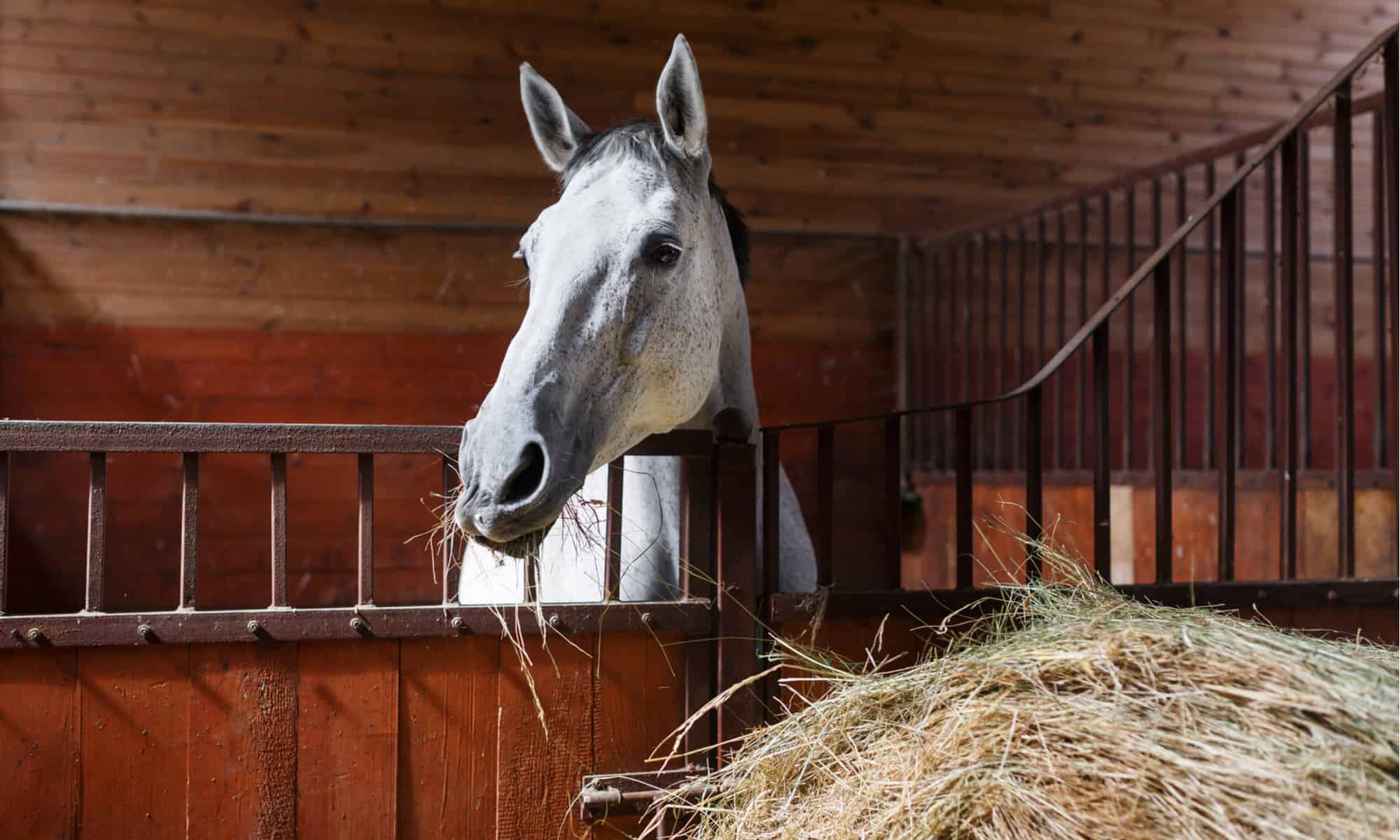
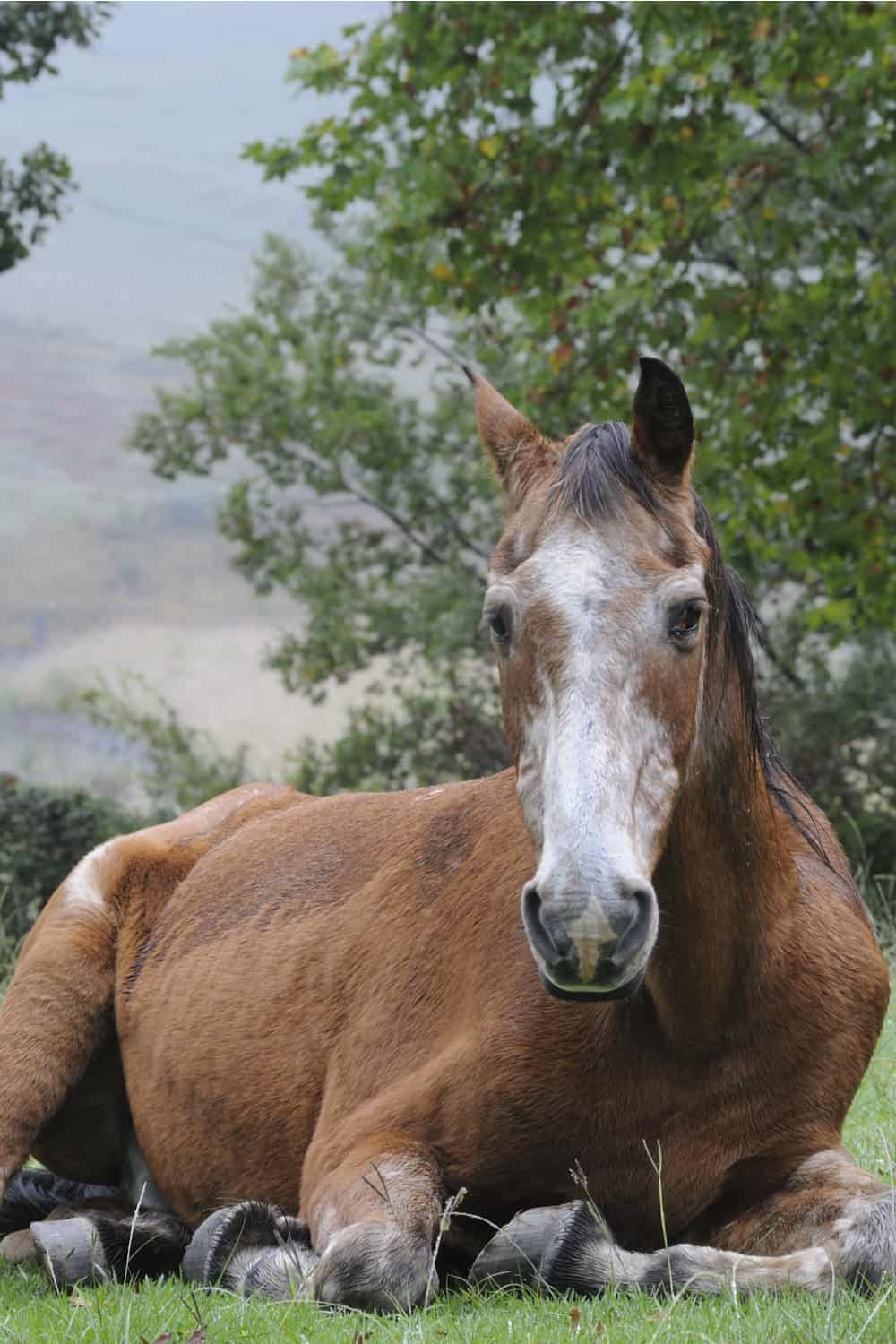
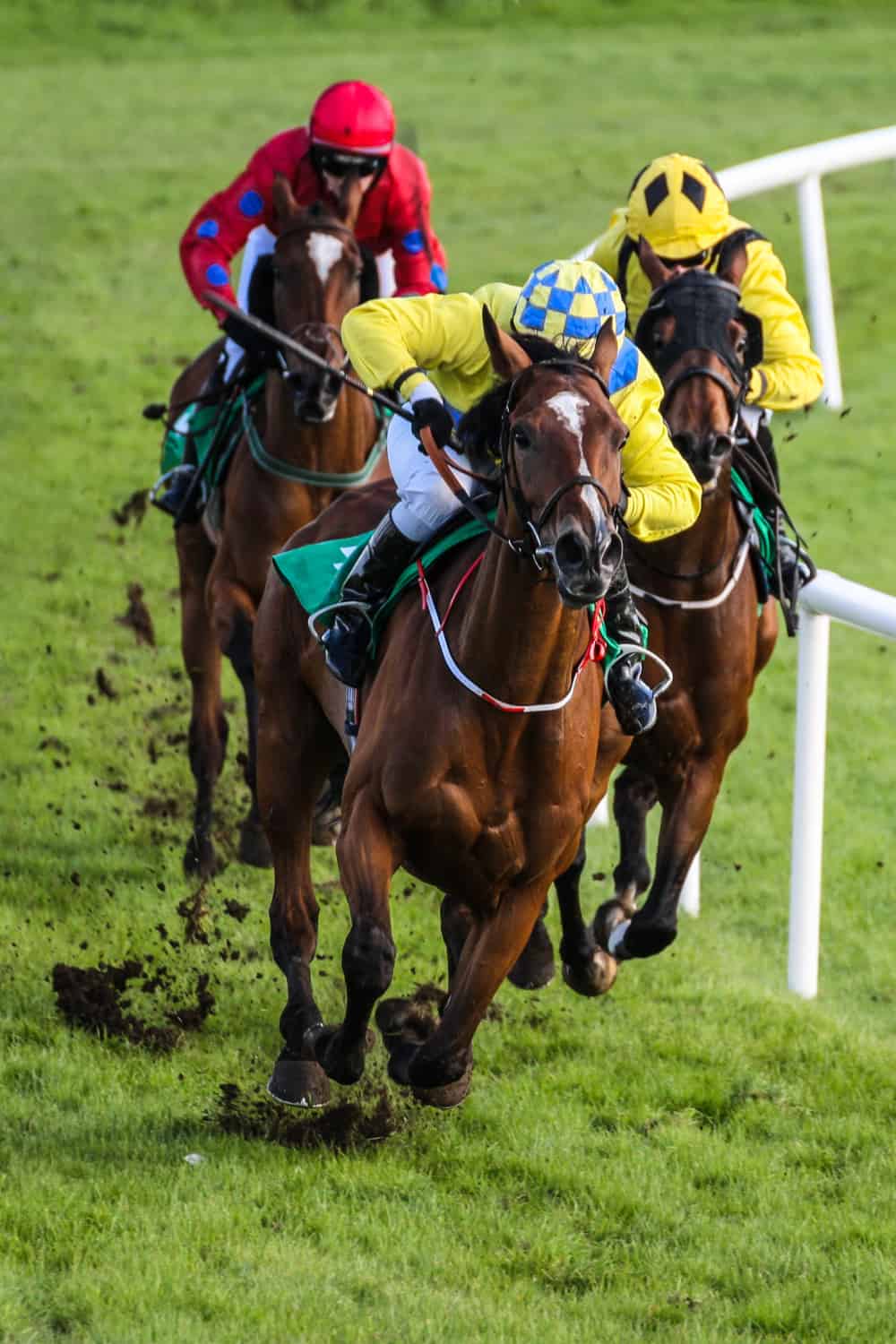

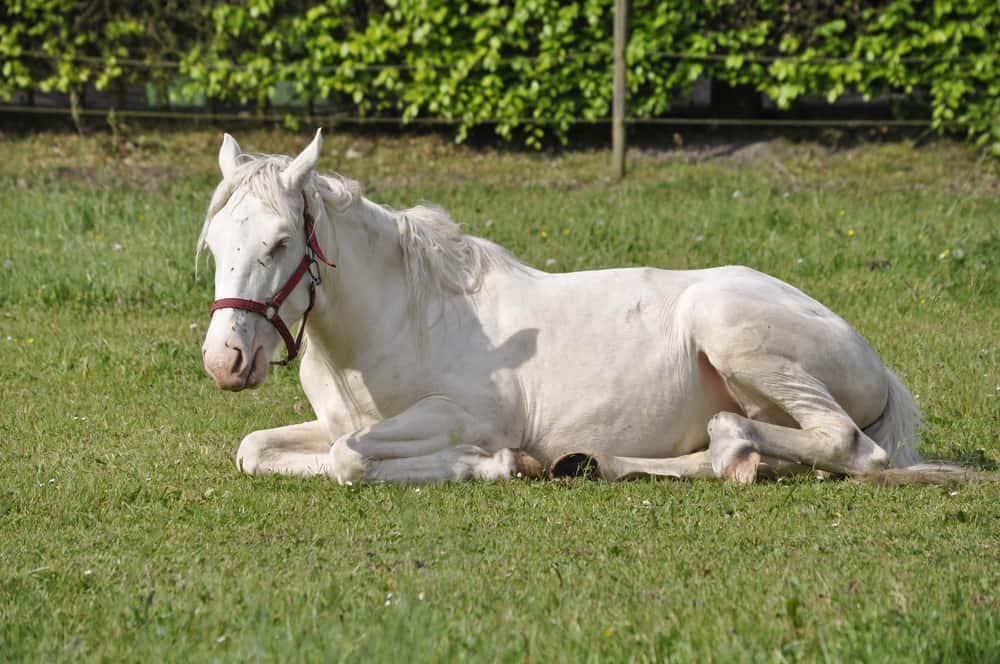
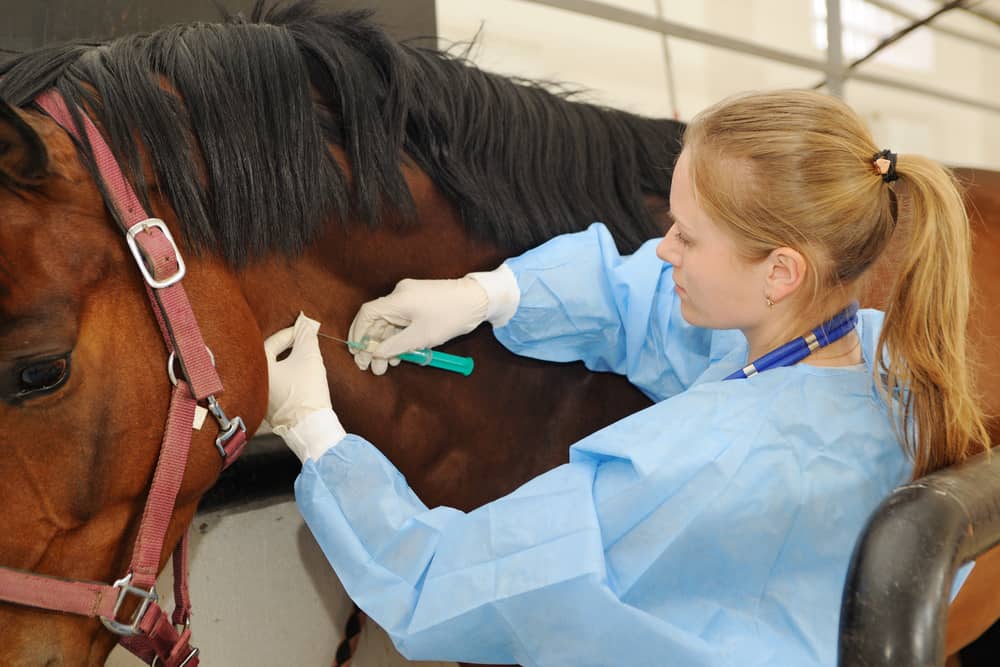
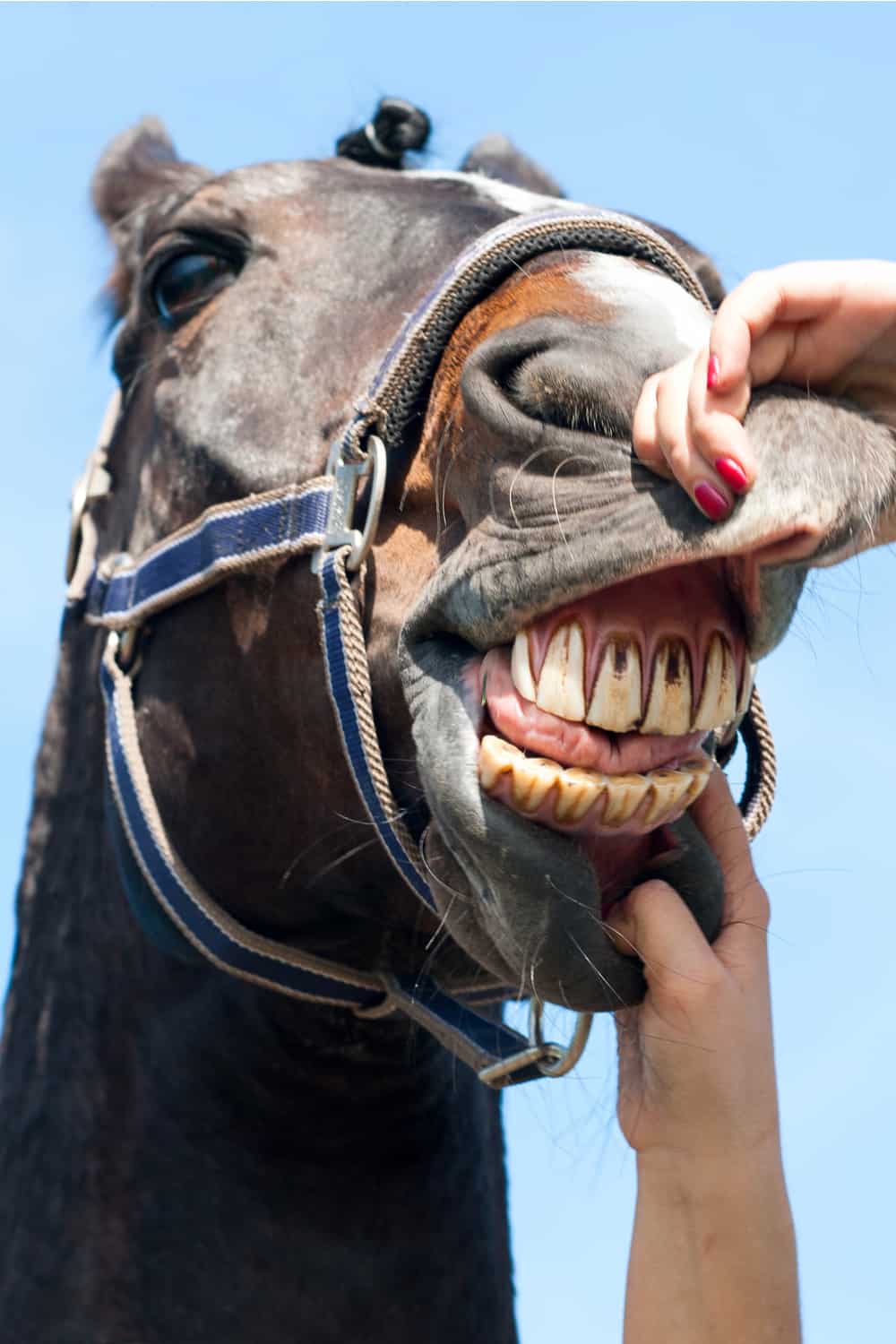
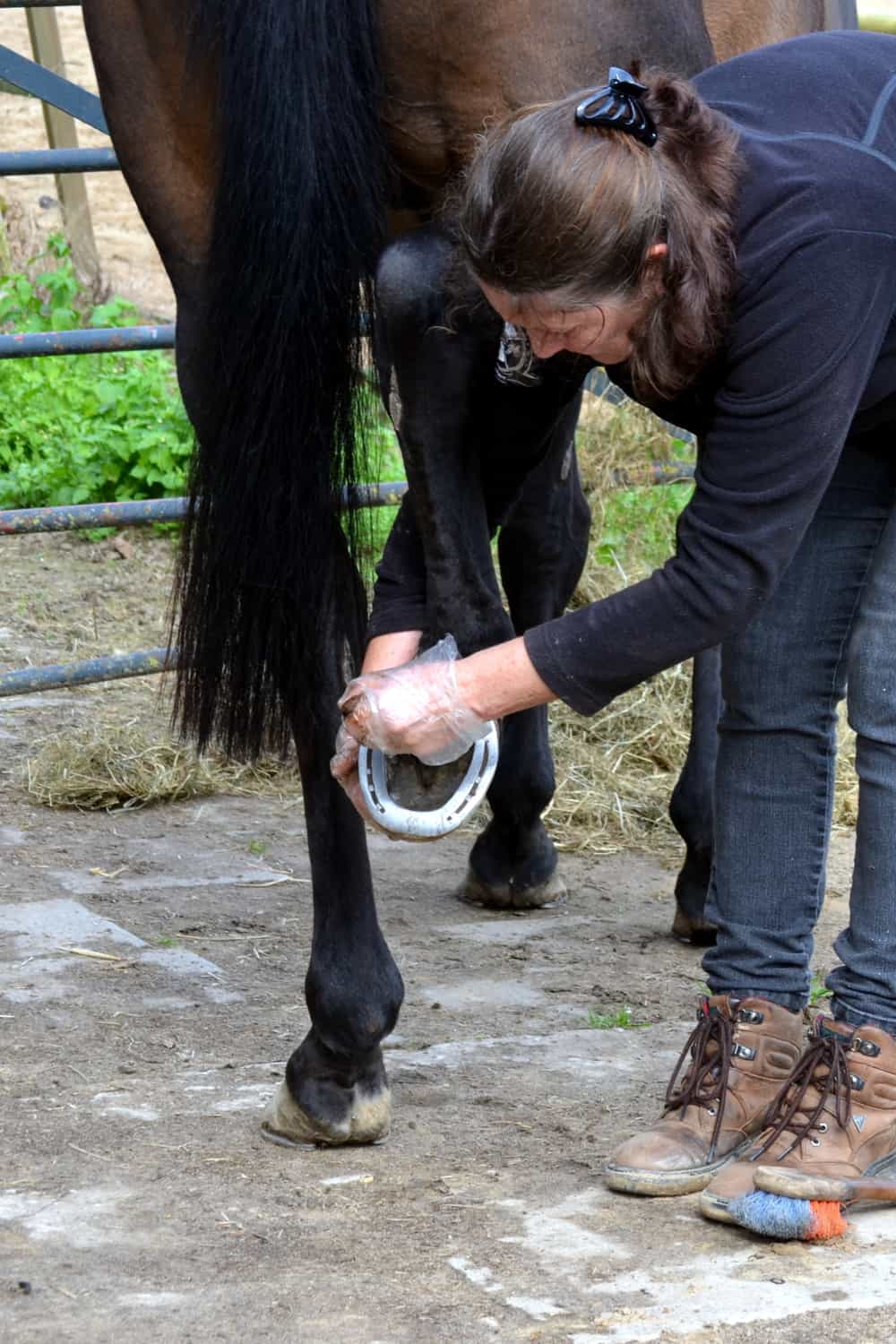
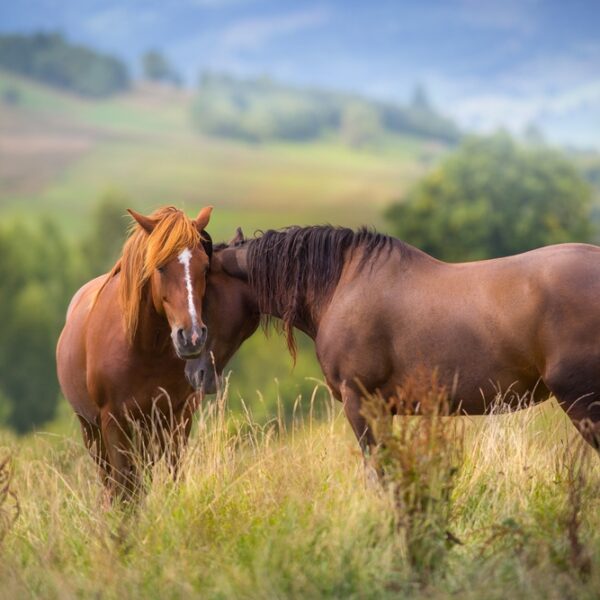
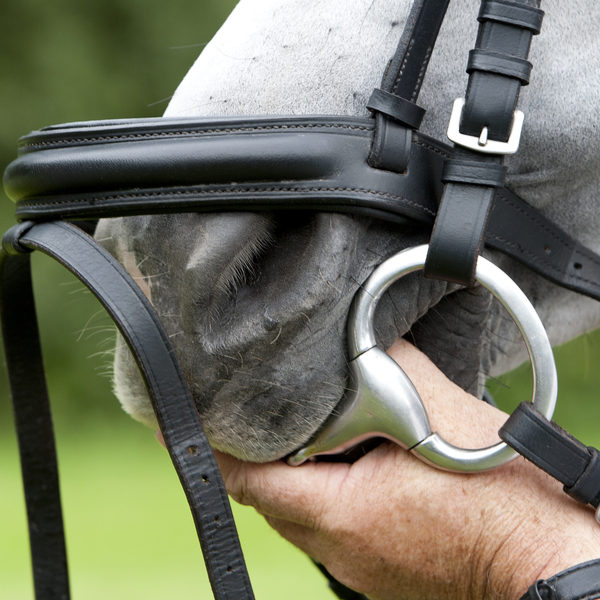
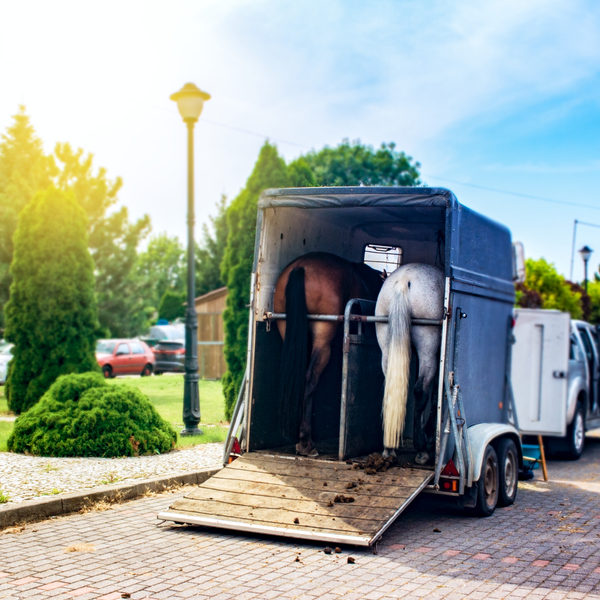
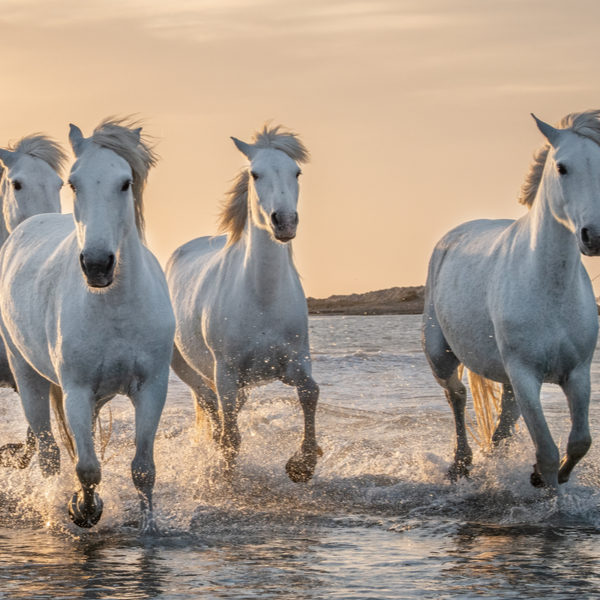
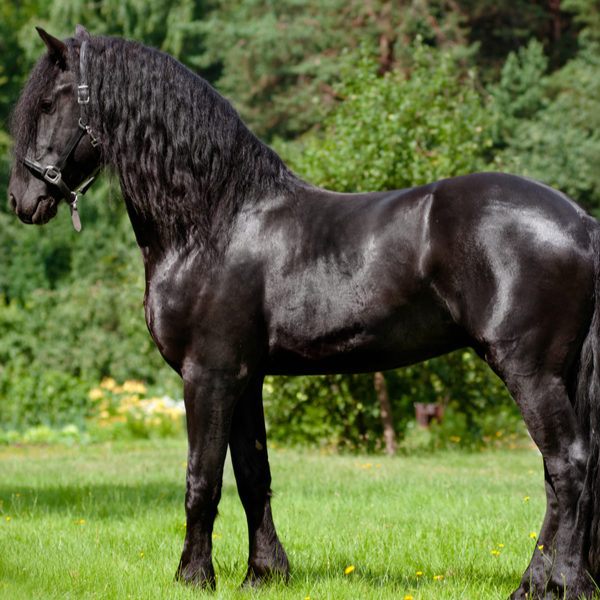
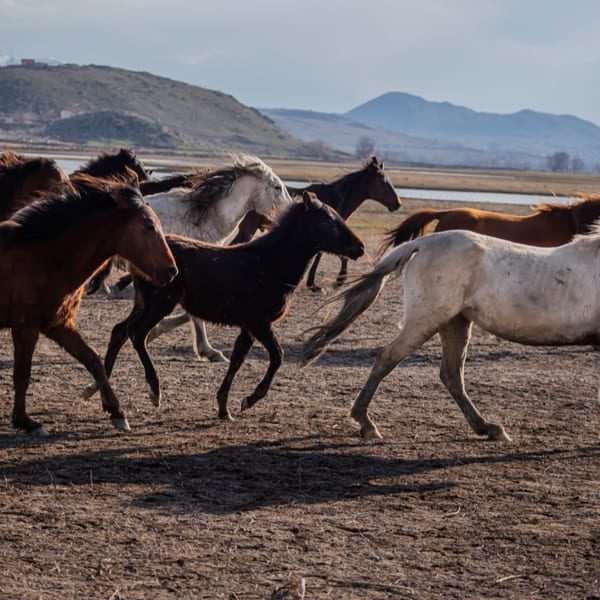
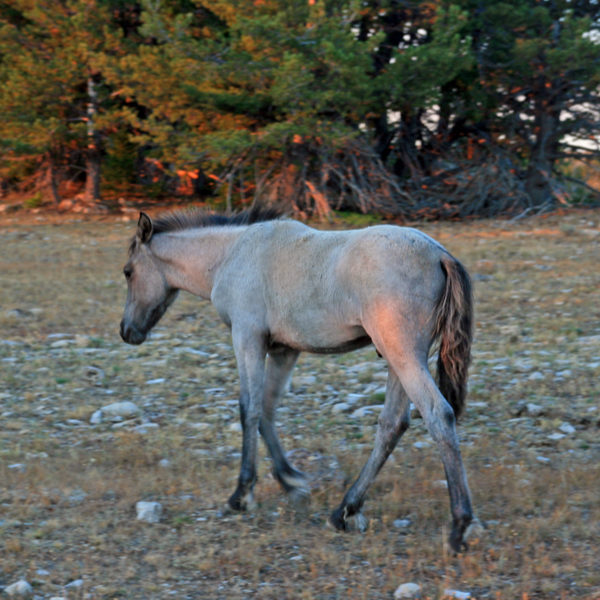
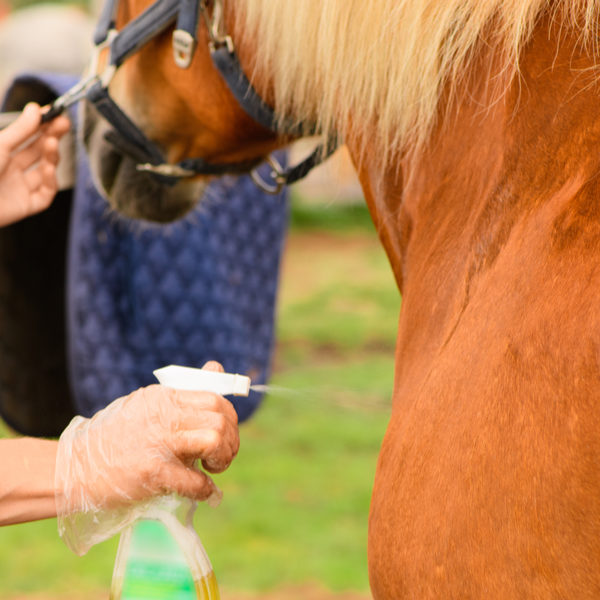
Hi, thanks for the tips! You have a great blog. You pretty much answered all the questions I had.